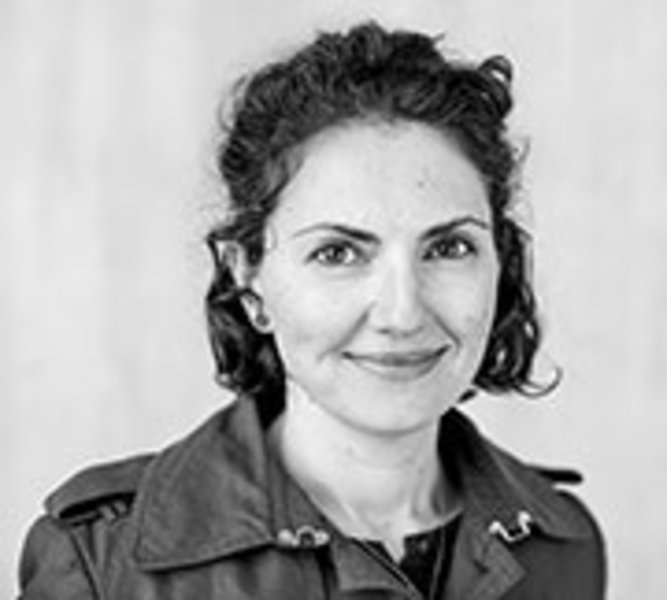With 7 billion mouths to feed around the world, and at least 1 billion of them mostly empty, it’s astounding that 30 to 50 percent of food produced globally is never consumed, according to a report released last month in the U.K.
In the U.S., we throw away 40 percent of our food, according to the Natural Resources Defense Council. The blame for this atrocious level of waste can be equally distributed among the entire food supply chain, from the farm to the supermarket to the restaurant to our homes.
And it’s costing us an arm and a leg. Specifically, 25 percent of our freshwater, 4 percent of our oil, $165 billion per year for purchased food that’s never eaten, $750 million per year to dispose of that food, and 33 million tons of landfill waste, which, by the way, decomposes and produces methane, a much more potent greenhouse gas than carbon dioxide.
Fortunately, we’re all starting to take this inefficiency seriously, with cities and states introducing, or considering, policies to curb or ban food waste, and social entrepreneurs working on creative solutions to recovering perfectly fine, yet-soon-to-be-discarded foods and redistributing them to the hungry in their communities.
The latest young sensation on this scene is Dana Frasz, founder of Food Shift, a nonprofit currently piloting a food recovery program with several partners in Oakland.
Before launching the pilot program recently, Frasz spent more than a year speaking, showing films, and hosting events to raise awareness and offer solutions to the food waste problem, which, she believes, does not get the public attention it deserves.
“This problem has been nagging me for 11 years,” Frasz said. “I’ve been so perplexed by this paradox of so many people going hungry when there’s so much wasted food.”
Her goal is to find an efficient model for professional food recovery services. “The traditional model has limitations that don’t allow it to expand and scale to a massive level,” Frasz said.
She explained that existing food recovery organizations provide a free service by relying mostly on volunteers. An example of this is the very successful Food Runners in San Francisco, which is recovering 10 tons of edible food from grocery stores and restaurants every week and delivering it to organizations that are feeding the hungry.
She hopes that Food Shift can develop a sustainable revenue stream that will support full time staff, including the very same people the organization serves.
Food Shift could do this through several potential sources, Frasz explained, like donations, fees for food waste pickup, and more creative ventures, like partnering with popular prepared-food vendors at local farmers markets to create and sell tasty concoctions made using ingredients from some of its donated food.
Today, the organization is experimenting with food donations from an Adronico’s Community Markets store in Berkeley, with occasional donations from Three Stone Hearth community kitchen in Berkeley and Full Circle organic produce delivery service in San Francisco, which, just last week, dropped off 325 pounds of produce in Frasz’s kitchen.
The recipient of these copious donations is the Society of St. Vincent de Paul, which serves the low-income community of the Bay Area’s Alameda County. According to its website, the organization serves about 1,000 hot meals a day.
Food Shift is not charging fees for pickup yet, because it’s working with Adronico’s to determine what those will be. The partners have agreed to share details of their expenses around this project to help Food Shift determine a fair fee structure.
Frasz admits that the waste pickup fees will be a tough sell (even though they’re 100 percent deductible), particularly in cities that charge a fixed fee, or through taxes, for unlimited waste pickup. So the incentive for businesses to spend more money to separate food waste and have it removed is minimal, and for now, mostly based on goodwill.
Luckily for Frasz, some cities and states have already implemented, or are considering, trash policies that would work in Food Shift’s favor by treating waste the same as utilities like water and electricity, which are charged by unit of consumption. (In fact, Massachusetts is planning to ban food waste altogether.)
An example of such a policy is called “Pay-As-You-Throw (PAYT),” which, as the name implies, requires residents and businesses to pay trash removal fees that are commensurate with the amount they generate. Communities — like Concord, N.H. and San Jose, Calif. — that use the PAYT system generate about 49 percent less waste than those that don’t, according to the EPA. Obviously, they must have robust composting and recycling programs in place for this to work.
It’s no surprise that Frasz’s work has already generated a lot of interest. She’s raised $20,000 from Clif Bar Family Foundation; StopWaste.org; a sponsorship from Commonwealth, a restaurant in San Francisco; and a few other sources. The Oakland Unified School District even approached her about managing a food recovery program for its 80 locations, unfortunately for free.
This year, Frasz hopes to raise $200,000 to pay for three directors, one driver, and other operating expenses. Right now, no one is paid, and Frasz and a program director take care of all food pickups and drop-offs, using their personal cars. In fact, she also hopes to stop using her car and leasing refrigerated vehicles, instead, ideally through the support of sponsors like U-Haul or Bon Appetit Management Company, for example.
Food Shift has also partnered with Oakland Food Policy Council to conduct a comprehensive research project looking at where the food waste and recovery industry is stuck, both on a national and local level. They hope to publish their results by June.
Follow me on Twitter: @kuurlyq
[Image credit: eatwell.in, Flickr]

Lonnie Shekhtman is a Massachusetts-based writer covering sustainable business, food systems, social enterprises and impact investing. Stay in touch by following Lonnie on Twitter: @kuurlyq.














